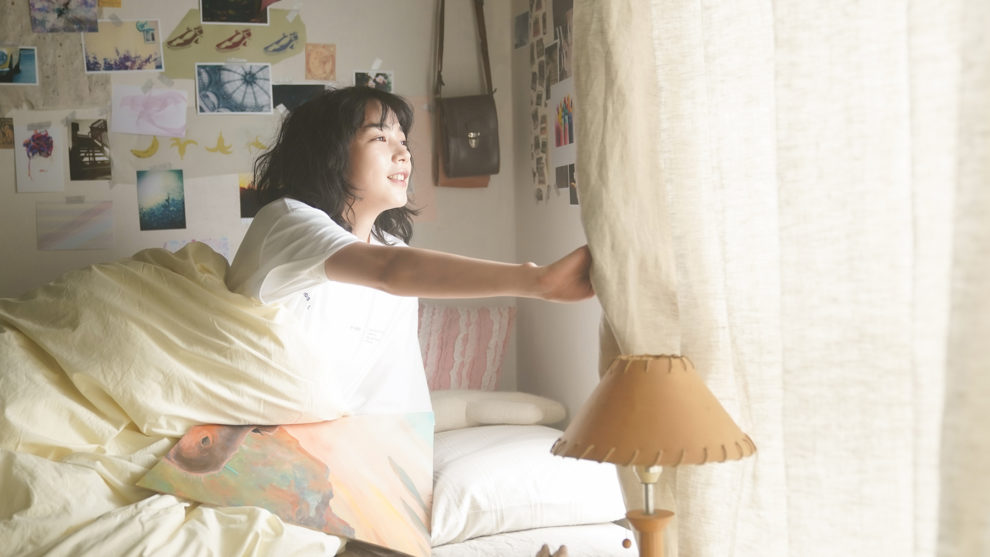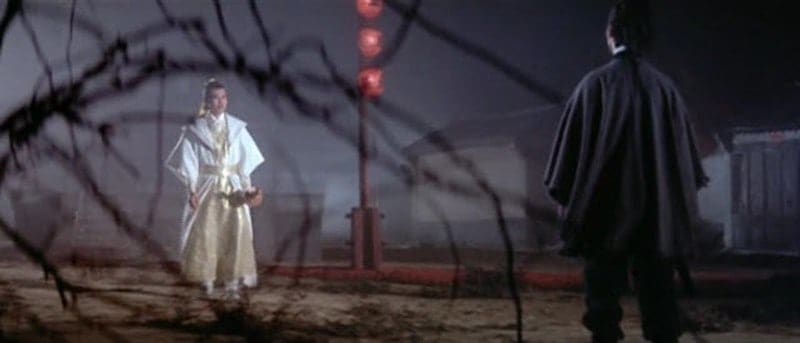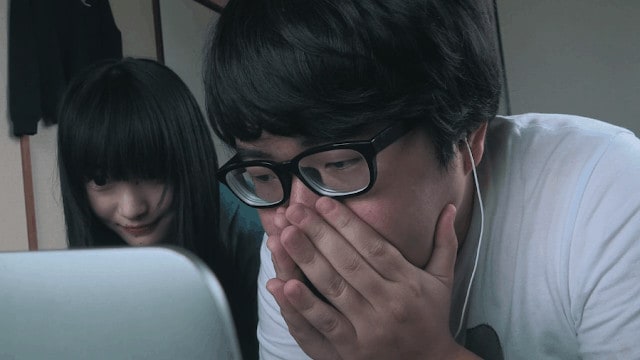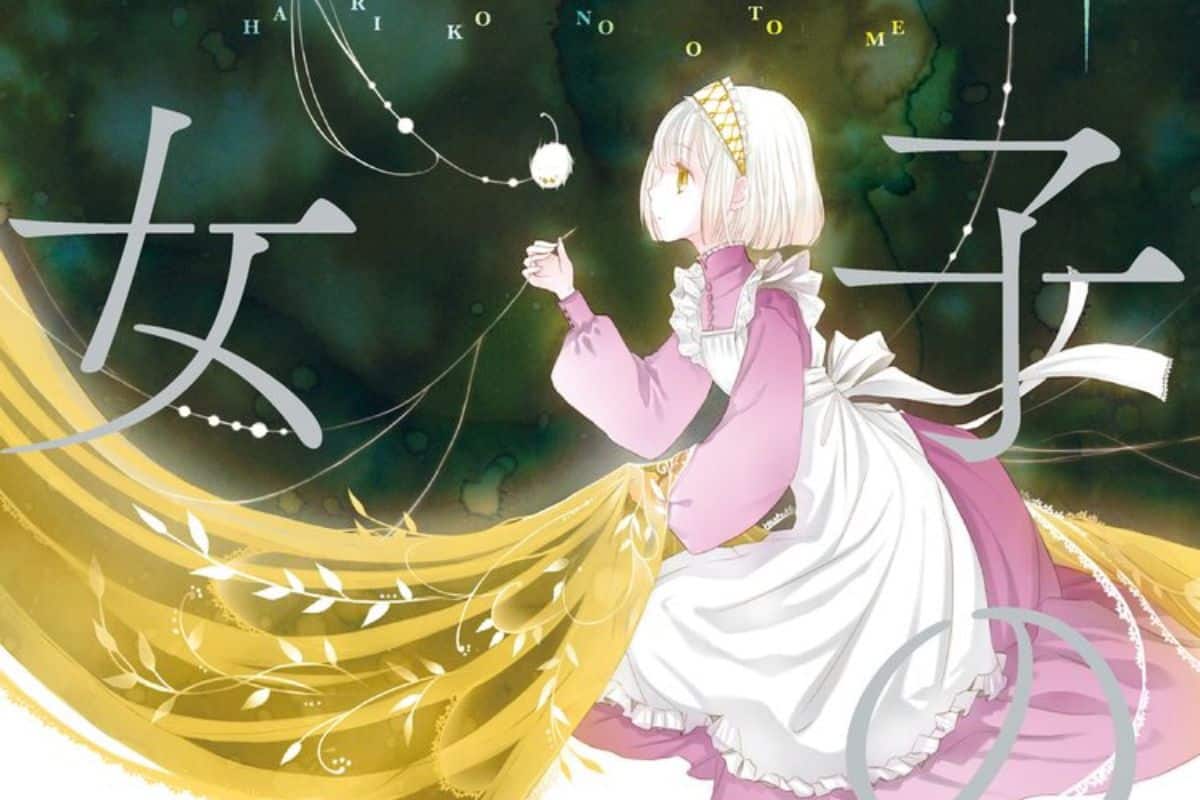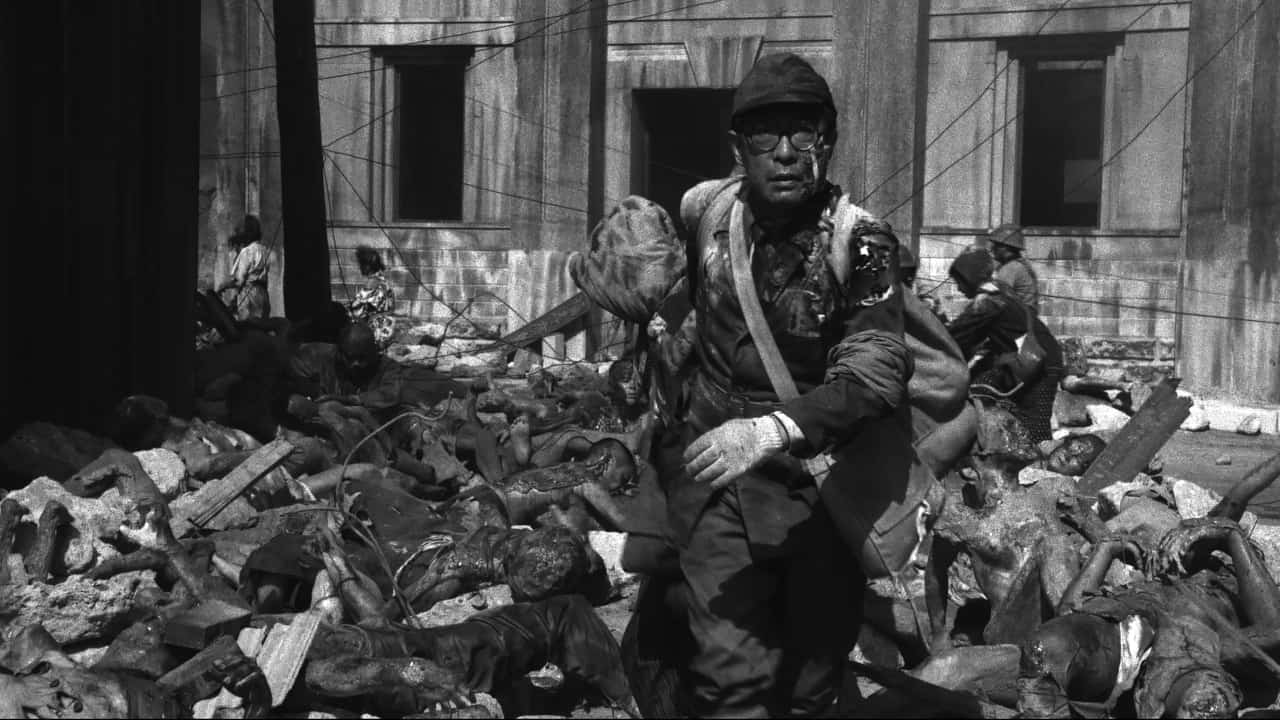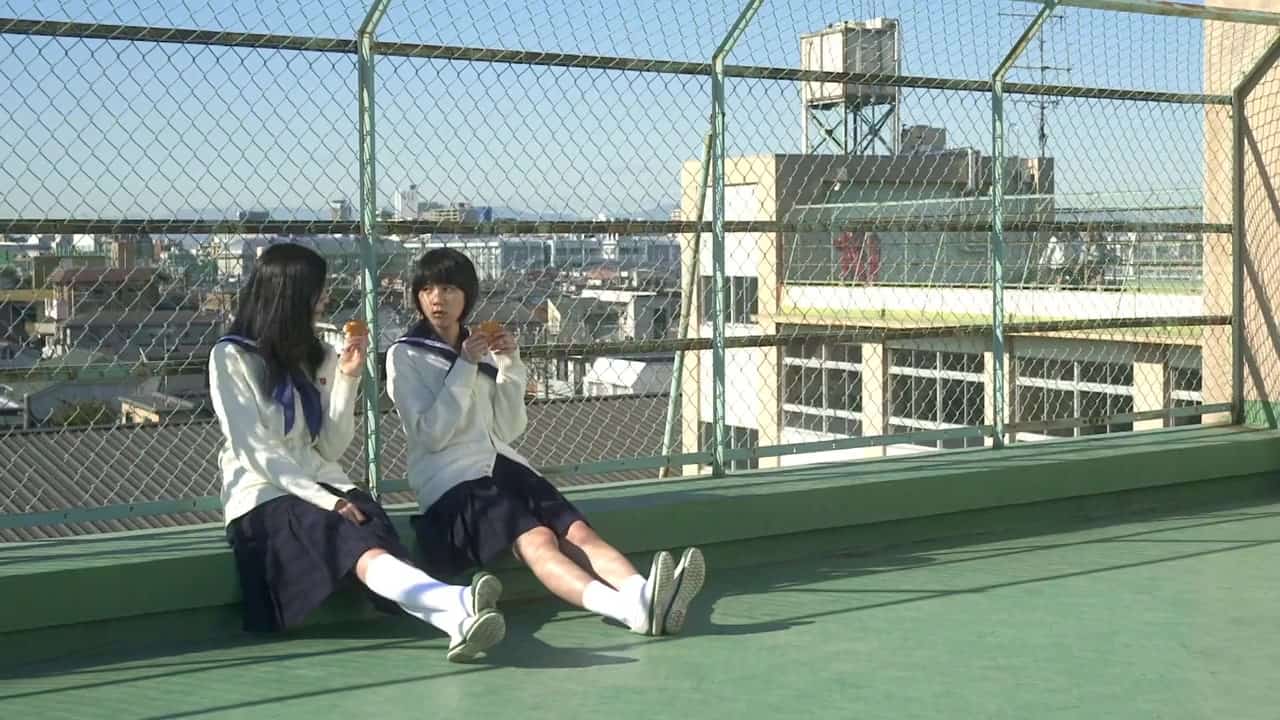Out of fear, out of the unknown, arises the irrational. As the paranoia of uncertainty runs amok, the responses trigged by individuals, whole communities, and even whole civilizations to clamber on to some sense of normality arouse our own perplexions; to have all we know as societies rejected and reduced to footnotes of “simpler times” produces nothing but extreme reverberations from all walks of life. When the world shutdown amidst Covid-19's reckless rampage, the immediacy of the ordeal left its irreparable stain on the lives of all those it touched, not to mention all the lives it has thus claimed. Life became fleeting, time stood still, and the endless vacuum that sucked us all in spiraled out of control. It is the search for a new purpose that preoccupies Non's (Rena Nounen) sophomore feature “Ribbon”, not so much as an existential yearning but as a means to stave off the ennui of a world trapped so begrudgingly in the dormant present.
“Ribbon” is screening at Toronto Japanese Film Festival

The spread of the coronavirus forces schools to close and all current work, including those by fourth years like Itsuka (Non) and Hirai (Rio Yamashita), cannot be continued and exhibited. Whilst many destroy their projects out of anger and frustration at their circumstances, Itsuka takes hers home to complete; there, her self-portrait sits as idly as she does, stuck in her own doubts and listlessness whilst she confronts a series of bizarre encounters with her parents, her sister Mai (Karin Ono), and Tanaka, a man who may have been the classmate from her past who propelled her to become an artist (Daichi Watanabe). Spurred on by her desire to confirm this man's identity, Itsuka fixates on schemes to uncover this truth. All the while, Hirai has her own inner conflict which spills over into Itsuka's own fraught bubble.
Delicately balancing the fine line between the humdrum and the whimsical, between dream and reality, “Ribbon” finds itself befittingly lost in a world turned upside down, a personal hell where all meaning is lost, all art is now “trash” and the faceless remnants of human expression populate the spaces where life once thrived. Non's world is understandably void of life, of sanity even, but not of charm: even through facing adversity head-on, the few characters who fleetingly navigate the “new normal” are riddled with their own intricate eccentricities born out of lockdown, eccentricities which are somehow simultaneously irrational and rational. Itsuka's mother adorns multiple layers to fend off the virus, her father almost gets arrested for utilization of a “social-distancing stick”, and her ninja-clad sister, whose comedic timing provides a breath of fresh air, is obsessive when it comes to spraying everyone and everything down with sanitizer; such behaviors, though played for laughs here, have trickled into our lives as now a common-placed deterrent in our struggles against this virus, cementing themselves in our memories of a film which amicably mirrors aforementioned “new-normal” down to the finest detail.

Where “Ribbon” particularly shines is how it communicates the hollow stillness which accompanied lockdown seen here through Itsuka's own bubble – a world equally removed from the barren outside and yet damningly locked in situ along with every other home in the world. Non embodies the unwelcome procrastination and languor of the lockdown generation with a personal degree of relatability, simply existing in her insurmountably untidy apartment, unable to keep on top of the task she has charged herself with – the completion of a year's worth of work – whilst attempting to maintain some resemblance of normality and routine as well as distracting herself with frivolous ventures such as the removal of Tanaka's mask. Hers is a resplendently quirky role, one lost in a daydream, and shadowed only by the pressing realities of her world, and that of Hirai, crumbling in every direction; the emotional weight of this existence is as fleeting as the plot's looseness but, much like the unfinished painting waiting to be deemed by Itsuka as trash, remains a permanent presence, deemed “too heavy” throughout the film's runtime.
Non's world outside of this at-times claustrophobic nest is empty, void of any discernable trace that communities once thrived. An alien stillness is brought to life by Misaki Hikosaka's often motionless cinematography, both in the film's dream-like sequences where ribbons float by unnoticed by Itsuka and in virtually every shot taking place outside, where even the camera is socially-distanced from the action it is framing. These sequences linger, eeking out their runtime for as long as rationally possible – just as the conversations Itsuka has with Hirai and her family, conversations about, frankly, nothing – amplifying the loneliness of this bizarre new normal as well as the distances being stretched by the preventative measures in place. The playful score, albeit clichéd, engages in a variable dalliance with the film's tone; from its moments of drifting poignancy to the child-like wonder of finding a new hobby as it were, the music here simply serves as an auditory complement, certifiably signposting the film with its checklist of genre requirements. This is not to say “Ribbon“'s score is unnecessary, it is just to say these are near-identical musical motifs we have heard in myriad other dramas and comedies.
Though “Ribbon” lingers on the harrowing domino effect of a life in lockdown it itself is not a dark, harrowing ideal; its world is one of hope not of things returning to the normal of before but of moving forward, of learning to thrive and make the most of a very prolonged breath, one which halfway through 2022 is still in dire need of an out-breath. Choosing to distance itself for the most part from the emotional turmoil the pandemic has reaped until its dramatic turning point and instead focusing on exaggerated forms of expression and responses, Non's film cements itself as an artistic self-reflection and a rebirth of purpose, an attempt at understanding who we need to be. Though its cast tries desperately to cling on to the past they had spent their whole lives building it consciously reminds us the past has long gone, not to be seen as trash but as an excuse to regenerate. It may not be the loudest voice in the room but the movie has a voice, one which says the most without saying very much at all: No matter how heavy it is, we must always thrive to express ourselves in these troubling times.


